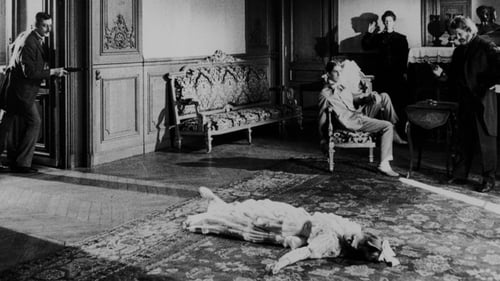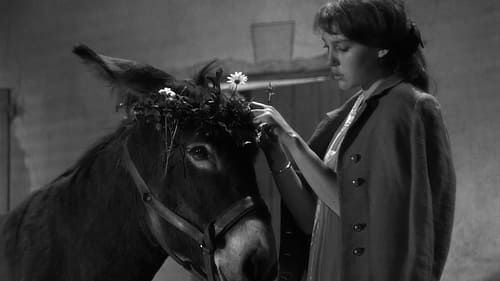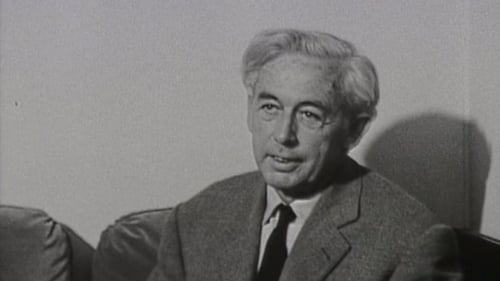Pierre Klossowski
出生 : 1905-08-08, Paris, France
死亡 : 2001-08-12

Self
The film contains the interviews with Pierre Klossowski and Jacques Pimpanneau.

Himself
Portrait of french author and painter Pierre Klossowski

Novel
The film opens with a rubber-clad woman stepping sensuously out of a limousine. The camera lovingly closes-up on her stilletoed foot... She enters a dark desolate warehouse, and meets two men, who proceed to chain her up and worship her body. Originally projected on three screens simultaneously. Music by legendary noise musician Merzbow.

Novel
Roberte, 40, resistant during the war, Calvinist and anticlerical, is deputy to the chamber and inspector of Censorship. She married Octave, an old Catholic aesthete, professor of canon law, whom she saves from impeachment for collaboration during the war. He submits his wife to a perverse custom: the laws of hospitality or prostitution of the wife by the husband.

Adaptation
Roberte, 40, resistant during the war, Calvinist and anticlerical, is deputy to the chamber and inspector of Censorship. She married Octave, an old Catholic aesthete, professor of canon law, whom she saves from impeachment for collaboration during the war. He submits his wife to a perverse custom: the laws of hospitality or prostitution of the wife by the husband.

Octave
Roberte, 40, resistant during the war, Calvinist and anticlerical, is deputy to the chamber and inspector of Censorship. She married Octave, an old Catholic aesthete, professor of canon law, whom she saves from impeachment for collaboration during the war. He submits his wife to a perverse custom: the laws of hospitality or prostitution of the wife by the husband.

Writer
Two narrators, one seen and one unseen, discuss possible connections between a series of paintings. The on-screen narrator walks through three-dimensional reproductions of each painting, featuring real people, sometimes moving, in an effort to explain the series' significance.

Thanks
Four corrupted fascist libertines round up 9 teenage boys and girls and subject them to 120 days of sadistic physical, mental and sexual torture.

Merchant
ピレネーの小村。教師の娘マリーは農園主の息子ジャックと共に、生まれたばかりのロバに“バルタザール”と名前をつけ可愛がる。ある日ジャックが引っ越すことになり、バルタザールもどこかへ行ってしまう。10年後、バルタザールが再び現れ、マリーが喜んであちこち“彼”に馬車を引かせ出かけるのを見て、彼女に思慕を寄せる不良のジェラールは嫉妬し、バルタザールを痛めつけ、実家のパン屋の仕事にこき使う・・・。

Self
A documentary, originally produced in 1966 for the French TV series "Pour le plaisir," about Robert Bresson's film "Au Hasard Balthazar," featuring interviews and discussions with Bresson, Jean-Luc Godard, Louis Malle, Marguerite Duras and others.

Self
Celluloid and Marble is based on Rohmer's own articles published in "Cahiers du cinéma", discussing film in relation to the other arts, maintaining that, in an age of cultural self-consciousness, cinema was “the last refuge of poetry” - the only contemporary art form from which metaphor could still spring naturally and spontaneously.








